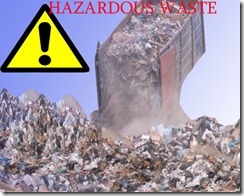The information provided here is part of Export Import Training course online
Transportation of Hazardous Waste
This article briefly explains about guidelines to transport hazardous waste, certification required to transport hazardous waste and process to dispose hazardous wastes.
The transport of the hazardous wastes shall be in accordance with the provisions of Hazardous waste movement and Trans boundary rules and the Motor Vehicles Act of importing country with amendments time to time. The movement of goods containing hazardous wastes is in accordance with terms and conditions and the details of goods are declared in specified format.
 The occupier shall provide the transporter with the relevant information in specified Form, regarding the hazardous nature of the wastes and measures to be taken in case of an emergency and shall mark the hazardous wastes containers as per specified Form. In case of transport of hazardous wastes for final disposal to a facility for treatment, storage and disposal existing in a State other than the State where the hazardous waste is generated, the occupiershall obtain ‘No Objection Certificate’ from the Pollution Control Board of both the States.
The occupier shall provide the transporter with the relevant information in specified Form, regarding the hazardous nature of the wastes and measures to be taken in case of an emergency and shall mark the hazardous wastes containers as per specified Form. In case of transport of hazardous wastes for final disposal to a facility for treatment, storage and disposal existing in a State other than the State where the hazardous waste is generated, the occupiershall obtain ‘No Objection Certificate’ from the Pollution Control Board of both the States.
In case of transportation of hazardous wastes through a State other than the State of origin ordestination, the occupier shall intimate the concerned State Pollution Control Boards before he handsover the hazardous wastes to the transporter.
Licenses to transport are usually valid for 1 year from the date of issuance. Interprovincial carriers and international carriers are also required to hold a valid license to transport hazardous waste even if they are only crossing British Columbia to another province or the United States or to other countries. These carriers must meet all the applicable requirements under the Hazardous Waste Regulation, including the use of manifest shipping document.
For the transportation of hazardous wastes, it’s mandatory that consignors of the waste complete a manifest - for hazardous wastes generated in BC, the manifest form must be the one issued by the province of BC with BC’s unique manifest identifier number.
The manifest form tracks the movement of Hazardous waste within, into or out of British Columbia. It documents the type and amounts of waste, who shipped it (the consignor), who transported it (the carrier), who received it (the consignee) and how it was handled.
A brief description about the subject is explained here. You may contact concerned government agency for latest update
Also read: Penalization under importation of hazardous material How to pack and label Hazardous wastes Process of importation of Hazardous Waste Duties and responsibilities of importer in handling hazardous wastes Hazardous Wastes management, handling and Trans boundary movement rules Certification from Pollution control Board Maintaining quality under importation of goods Test report of analysis from Laboratory to import hazardous waste materials
The above information is a part of Import Export Training course online
The above article explains about process of transportation of goods containing hazardous waste, certification required to transport hazardous waste and procedures to dispose hazardous wastes.
You may share your views below about transportation process of materials containing hazardous wastes.
Also read;
GST rate payable for goods or service, click here
Click here to know GST exemption list of goods and service
How to export your product?
How to import your product?
Click here to know HS code of your product
What is the ITC code (Indian Tariff Code) of your product?
12 Major risks and solutions in Imports and Exports
Dispute settlement in international business
Related posts about import export trade tutorial:
Types of Export Containers
Dimension of Cargo Containers
Import procedures of Fur skins and artificial fur
How to import Articles of leather, handbags, articles of gut
How to import Raw hides, skins and leather
Steps to import Rubber and rubber articles
What is VACIS exam in US import customs clearance
Terms of Payment in Export and Import
Terms Used in Marine Insurance
The difference between FCA and CIP terms
The role of bill of exchange in import export business
The term FCL. What is FCL means
How to make DA mode of payment safe
How does comprehensive policy of ECGC work for exporters?
Top 137 Airline names and their websites worldwide
Toxic Substances control Act (TSCA) certification
TYPES OF MARINE INSURANCE POLICIES